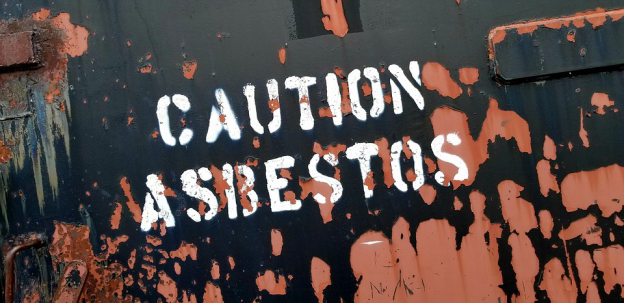Asbestos is a naturally occurring mineral that is known for its resistance to heat and corrosion. It is most popularly used in products that insulate pipes, in floor tiles, vehicle brakes, and as a building material.
The mineral includes fibres of amosite, chrysotile, tremolite, crocidolite, actinolite, anthophyllite and more. All or most of these minerals have been chemically treated and/or altered to formulate asbestos.
Why Is Asbestos Hazardous?
Asbestos is composed of very thin, needle-like fibres that can be inhaled through breathing. For this reason, it is not considered to be harmful unless it is releasing fibres or dust in the air.
These fibres, when inhaled, can get trapped inside the mucous membranes of the throat and nose. From here, some fibres may get to the lungs and/or digestive tract. These cause serious health concerns.
It is very hard to destroy asbestos fibres; the body cannot break them down or digest them once they are inside. They can cause the following diseases:
- Asbestosis
- Lung Cancer
- Mesothelioma
Today, we’re talking about mesothelioma and how asbestos affects employees across different professions.
What Is Mesothelioma?
Mesothelioma is a rare but aggressive form of cancer that can develop in the linings of the abdomen, heart, or lungs due to exposure to asbestos—the only known cause of malignant mesothelioma. After the diagnosis, the patient is only expected to live from 12 to 21 months.
What Are The Symptoms of Mesothelioma?
The following are some of the symptoms of mesothelioma:
- Dry coughing
- Wheezing
- Dyspnea (shortness of breath)
- Respiratory complications
- Chest and/or abdomen pain
- Night sweats
- Fever
- Pleural effusion (fluid around the lungs)
- Muscle weakness
- Fatigue
The only way to know for sure that you have mesothelioma is through a biopsy. However, doctors may be able to see early signs of this disease during a regular check-up, in an X-ray, or during a blood test.
If you work in a profession that has high exposure to asbestos, regular checkups are a must.
Which Occupations Have The Highest Asbestos Exposure?
It will save a lot of lives if employers decide to use alternatives to asbestos. The following are some professions with the highest asbestos exposure:
- Construction workers
- Firefighters
- Industrial workers
- Power plant workers
- Shipyard workers
- Asbestos miners
- Asbestos plant workers
- Boiler workers
- Factory workers
- Insulators
- Industrial workers
- Steel mill workers
- Textile mill workers
- Factory workers
To ensure that individuals are working in a safe environment, WorkSafeBC ensures that workers who enter asbestos laden workspaces know what needs to be done if exposed to this deadly substance.
Metro Safety is a leading provider of first aid training in Surrey, Coquitlam, Richmond and Vancouver. Get in touch with us to know more about our workplace safety courses in British Columbia.







